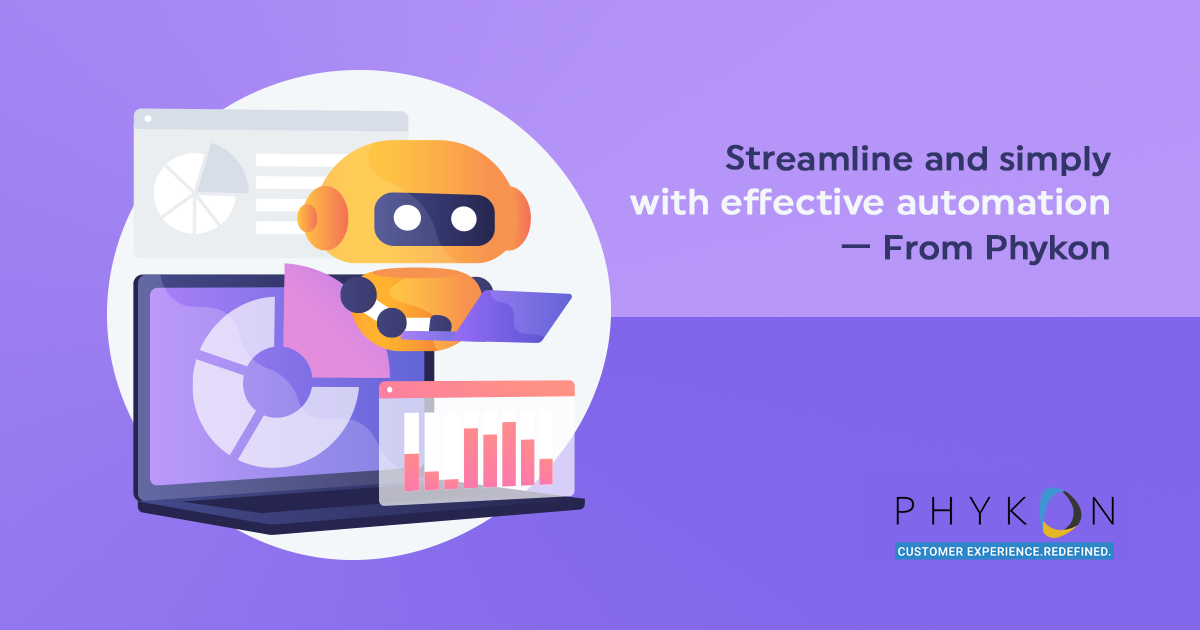Is Automation a New Mode of Business Process Management (BPM)?
Automation a New Mode of Business Process Management (BPM): In this digital era, digital transformation has become the need of the hour. It is essential for every organization to thrive in today’s fast-paced technological environment. BPM or Business Process Management has played a key role in bringing digital transformation to organizations. The latest technological innovations are transforming the traditional BPM strategies. Most organizations are automating their business processes with the best Robotic Process Automation solutions to remain in sync with the trend and to stay ahead. Both automation and BPM are complementary to each other, and when combined together, can yield excellent results.
Business Process Management or BPM
Business Process Management is a holistic approach. It optimizes business processes in an organization. BPM reshapes an organization’s existing business processes to improve efficiency and increase productivity. It is a systematic approach that makes a company’s workflow more effective and reliable for better understanding. BPM improves and streamlines business processes. With components like business analytics, business rules, workflow engines, web forms, and collaboration tools, BPM automates end-to-end business processes. BPM involves re-engineering the process flows in order to connect systems, eliminate bottlenecks, and increase enterprise-wide productivity and efficiency.
Implementing a large BPM system across your organization may be costly and will take time for implementation. BPM solutions involve a lot of custom coding which lengthens the complexity of the system. An alternative, less complex way is to automate certain processes in BPM by integrating it with RPA which offers both standardization and automation of business processes.
Automation
Automation tools like RPA focus on automating high priority repetitive tasks. Robots used in automation are capable of mimicking human interactions while maintaining a zero error rate. Bots act as virtual business assistants which let the employees concentrate on more engaging and revenue-generating tasks. Automation tools can be incorporated without disrupting existing processes. It does not require extensive training. RPA is cost-effective and brings in quick returns, but it is not capable of addressing all inefficiencies in underlying process workflows. BPM can effectively handle this by re-engineering inefficient workflows to achieve an overall gain in productivity, agility, compliance and efficiency. Various industries are adopting automation in their business processes to improve customer satisfaction and business productivity. For example, inbound call centre service providers make optimum use of Robotic Process Automation to enhance business.
Tag Team To Achieve a Single Goal
Business Process Management and Automation aim to achieve similar goals — to increase the productivity and efficiency of businesses. Though both can be deployed separately, their individual benefits get compounded when they are implemented together. Identifying the best Robotic Process Automation software is a key step. It can help in boosting the gains achieved through conventional Business Process Management system. The BPM industry is steadily growing as more and more organizations are adopting automation to carry out their business processes.
RPA Is Redefining Business Process Management Systems
Robotic Process Automation helps in tackling repetitive and time-consuming tasks involved in Business Process Management. The main aim of RPA is to ensure minimal human intervention in repetitive tasks, which do not vary much in different iterations. Manual tasks such as data entry, copy and paste, searching, or pulling reports together from multiple places are involved in BPM. RPA helps organizations to achieve a higher level of efficiency by automating these manual tasks without altering the existing systems. After completion of tasks by RPA, BPM systems can perform follow-up actions and push the results to the employee for review. Thus by offloading repetitive tasks to the best Robotic Process Automation tool, BPM systems can optimize business processes more efficiently.
How Automation Improves BPM
By automating BPM systems, organizations can achieve high quality, reliable outcomes. Automation of customer service follow-up processes will help in providing consistent customer service. By coupling, consistency, and quality with time and efficiency, organizations can concentrate on developing higher quality, feature-filled products with little or no increase in production time and costs. Automation a New Mode of Business Process Management.
Improves operational efficiency
Developing and implementing a superior strategy is a key factor in determining the success of any business. Automated BPM solutions are controlled by pre-defined workflows that operate accurately within the defined time frame. By reducing the time, effort, and cost of task completion, automation ultimately improves operational efficiency. The consistency of automated processes allows the employees to work more on important tasks and also to offer reliable processes to their customers.
Get more done in less time
To optimize the flow of information throughout the production, service, billing, and collection departments, organizations should eliminate unnecessary tasks and realign process steps. Distill operational performance and reduce the turnaround time through RPA-driven BPM solutions. Manual tasks are more prone to errors and slow down processes increasing the operational cost. Automated BPM systems are capable of achieving more by utilizing fewer resources.
Reduce manual involvement and errors
Organizations always prefer automation as human labor is much more expensive in the long run. Migrating from traditional BPM to Automated BPM is an effective way to avoid repetitive manual labor which gradually increases the financial savings of the company. The best Robotic Process Automation software always focuses on better customer service and brings in operational stability. Automated BPM eliminates situations of losing documents or skipping process steps. As a result, employees can effortlessly provide value to clients while the software takes all measures required to bring in accuracy and security to the business process. Automation in BPM helps organizations to avoid document processing errors. Automated BPM solutions are easily adaptable which helps the organizations to easily launch and scale new solutions according to the needs of the market. Automation a New Mode of Business Process Management.
As the present digital world is continuously changing and evolving, automation of Business Process Management systems will be the chief driving force which will lead to the growth of your business. BPM helps in orchestrating a coordinated and efficient workflow which integrates users, systems and data. Robotic process automation complements Business Process Management by automating repetitive tasks. It also helps in completing important tasks in the workflow within a short span of time. To attain complete digital transformation, implement the best Robotic Process Automation solution. Intelligent automation of corporate-level processes is very much doable using BPM and task level processes using RPA which is supported by analytics and Artificial intelligence.




